In the month since Russia invaded Ukraine, at least 10 million people have fled their homes. But for countless more refugees across the world, Vladimir Putin’s assault on democracy began long before 2022.
Eight years ago, the breakaway enclaves of Donetsk and Luhansk, in Ukraine’s eastern Donbas region, became the site of fighting between Russian-backed separatists and Ukrainian forces. That same year, 2014, Russia also annexed Crimea, sparking global condemnation.
There was precedent for this. In 2008, over the course of five days, Russian troops under then-Prime Minister Putin invaded the former Soviet state of Georgia, supposedly to defend the independence of two pro-Russian territories – South Ossetia and Abkhazia.
Beyond Europe’s borders, Russian forces entered Syria’s long civil war in 2015, bolstering ally President Bashar al-Assad’s regime. In the wake of Russia’s massive bombing assault on Aleppo, the country lost its seat on the United Nations Human Rights Council.
We asked refugees and displaced people from each of these conflicts to share their stories of forging new lives – and the lessons for Ukraine today. The opinions expressed in these commentaries are their own.
DONETSK 2014
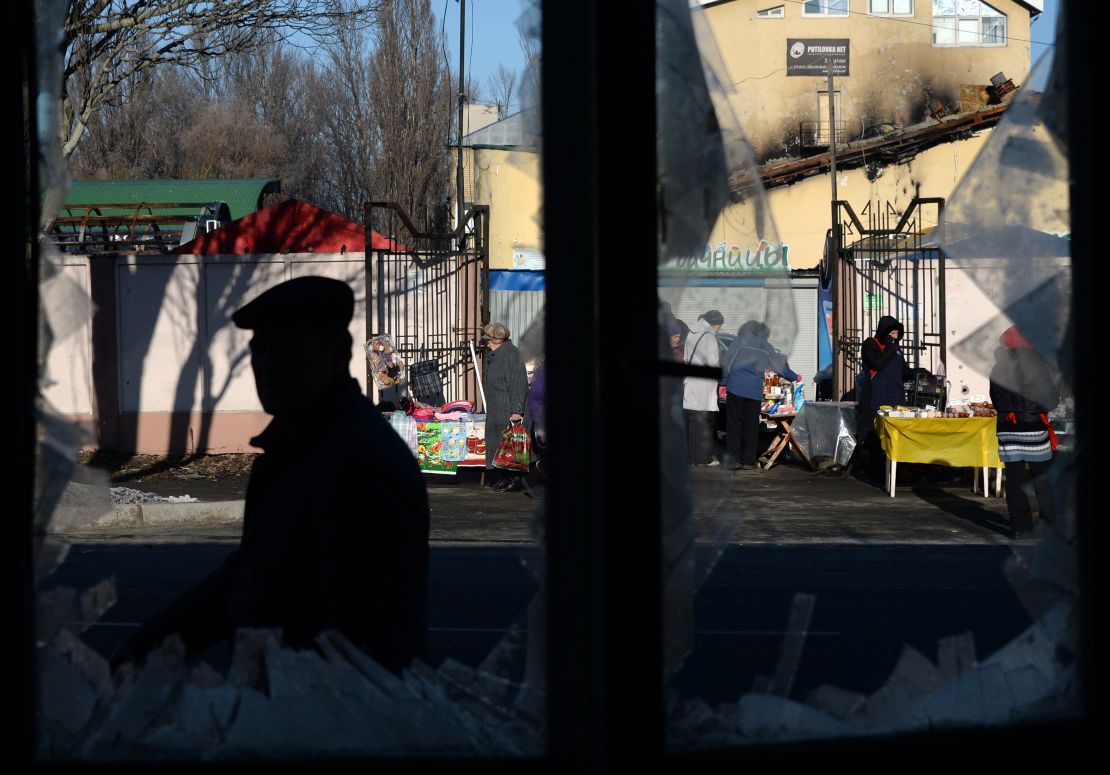
The writer living under Russian attack a second time
Olena Stiazhkina is a Ukrainian writer who lived in Donetsk until 2014, where she taught in the Donetsk National University history department. She is the author of “Cecil the Lion’s Death Made Sense” and “Zero Point Ukraine.” She lives in Kyiv. Her words have been translated by Uilleam Blacker, associate professor at University College London’s School of Slavonic and East European Studies.
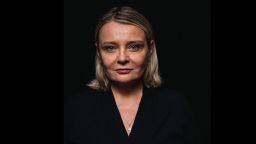
Over the last two weeks, the year 2014, which never ended, has been attacking me from all sides. In the spring of that year, back in my native Donetsk, I began to act like the local madwoman, muttering under her breath and occasionally screaming: “Tanks! War! The Russians are coming!”
Since I moved to Kyiv, I’ve kept up this persona. For years, I’ve been looking people in the eye and telling them: “There will be war. There will most definitely be war.”
Every year, those of us from Donetsk, Luhansk and Crimea relive 2014. We recall our resistance, mark the cursed anniversaries of the pseudo-referendums, remember the liberation of neighbouring cities – Mariupol, Volnovakha, Sloviansk, Kramatorsk – in the summer of that year.
Trying to start afresh in our new, supposedly peaceful lives, we learned to fit our existences into suitcases. Some of us never really unpacked.
My children say that their greatest fear is to be killed (torn apart, burned, shot, the Russians have multiple options). Instead of feeling horror at this, I felt relief. I felt like the fear they were talking about was normal. It was healthy, human fear that testified to the soundness of their mental state, which I feared I might have ruined – but no, I hadn’t.
My greatest fear is a long, slow death without the knowledge of whether my loved ones are alive or dead.
After 2014, Ukrainians developed the habit of thanking our soldiers in the street for halting the progress of the enemy in the east. It’s a very simple, everyday gesture: if you see a fighter in the street, you place your right hand on your heart and you say ‘thank you’ – say it out loud, or just whisper it, it doesn’t matter.
I won’t lie and say that everybody everywhere took part in this practice, but the hand placed on the heart is a gesture that is understood by all Ukrainians.
Since 2014, we also accompany our heroes on their final journey on our knees. If a funeral procession is passing through a town or village, the people, who may not have known the dead soldier, kneel down on either side of the road. And this is everybody and everywhere. Without exception.
I have difficulties with the calendar. As I write this, I know it’s the 17th day of the war, but I don’t know what day of the week it is. I can’t think about timescales. ‘The long haul’, ‘many years’, ‘frozen conflict’. It’s been eight years now.
This is the 17th day of what will later be referred to as the final stage of Russia’s aggression against Ukraine. We will not be broken.
SYRIA 2016
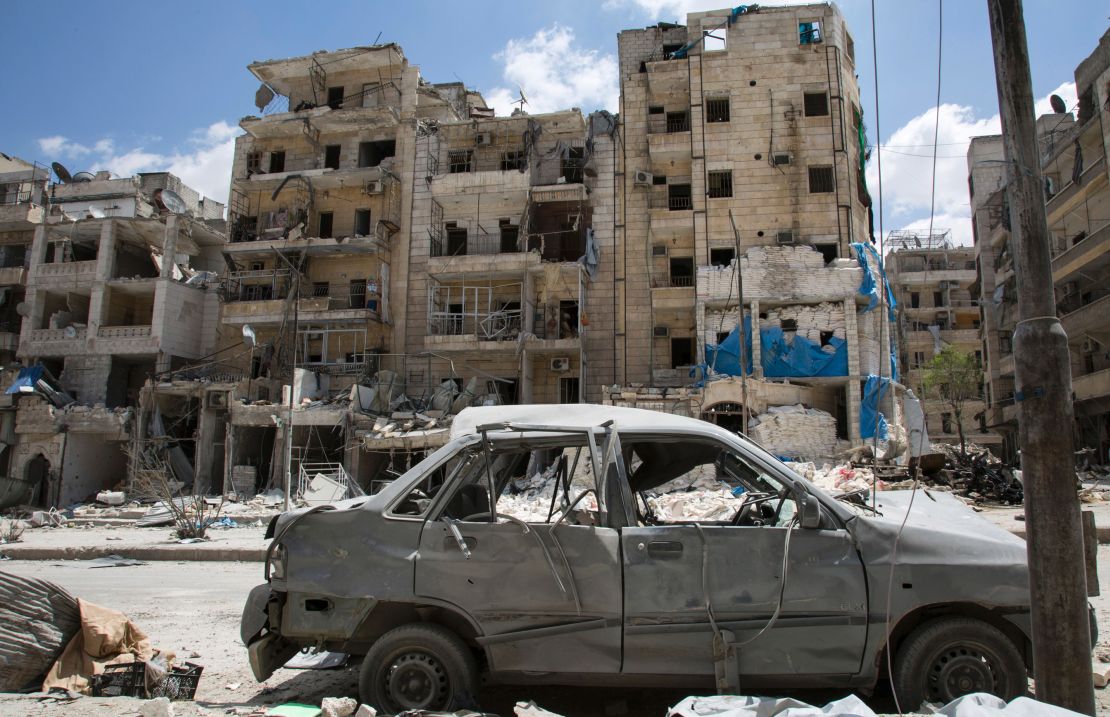
The Syrian teacher on giving children hope
Afraa Hashem is a teacher, human rights activist and speaker for the campaign group Action for Sama. Hashem previously worked as a school director and supervisor at psychological support centres in Aleppo, Syria. She lives in the UK with her husband and three children.
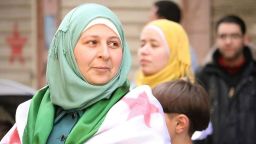
Some dates stick in your memory. On December 14, 2016, I was trying to entertain children in a shelter in Aleppo; reading stories to them and singing.
On this day, a short-lived truce in the city was broken by the Syrian regime and its ally Russia – and the building where I was hiding with my children, and more than 200 other women and children, was bombed.
I remember the fear and panic spreading among us as the smoke spread through the shelter. People were suffocating from the fumes. In this moment, I felt that death was close to me and all the innocent people I was with.
I tried to control my fear and lessen the terror around me. I had to lie to everyone and pretend to be on the phone with the Western press, or that I was talking to the United Nations, and that they were doing something to save us. I felt like I had to lie to give people hope.
I read the recent reports of the Russian bombing of a theater in Mariupol, Ukraine, with horror. A theater which contained hundreds of civilians trying to escape. I wondered how many mothers or teachers lied like me, in order to give their children hope?
All they want to hear is that the United Nations and European countries will not let the Syrian tragedy be repeated; that Ukrainians will not be let down as we were.
Now, I am waiting for something that can restore my hope and confidence in all the countries that have failed us. I am waiting for an action that can save innocent lives, that puts an end to these atrocities, and is a radical solution to Russia’s greed and violence in Ukraine and Syria.
For now, I wait for an action that prevents violence from being transferred to other countries in other contexts. We stand with Ukraine.
UKRAINE 2022
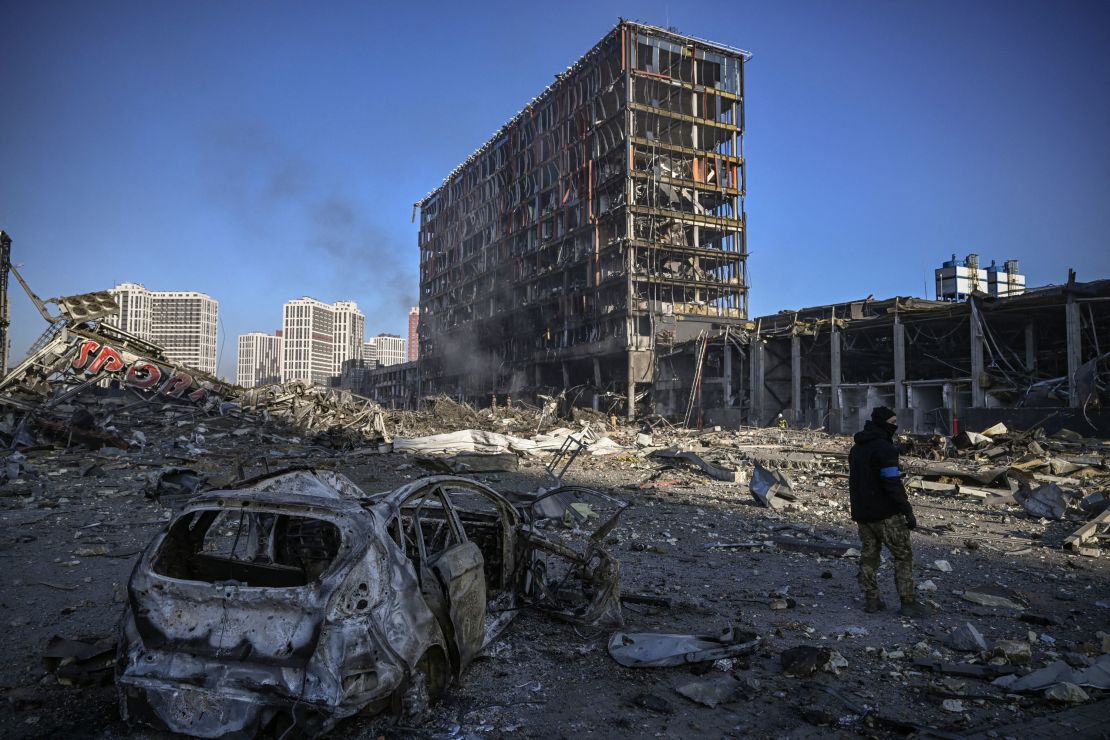
The Kyiv family driving to another country torn by war
Olesia Markovic is a PhD researcher at Ukraine’s National University of Kyiv-Mohyla Academy. Markovic is a former communications consultant for the International Finance Corporation and a foreign affairs reporter.
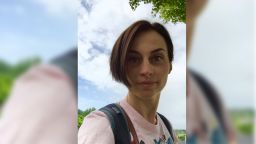
I left Ukraine a little over a week ago with my family – my husband, our eight-year-old son, my mother and five cats (three are ours, two my mom’s).
Because my husband is a European Union citizen he can leave the country. Many Ukrainian men (aged 18-60) are not allowed to leave; they are urged to stay and serve their country to the best of their abilities.
And some, like my 69-year-old father, are allowed to leave but can’t – the town where he lives is encircled by Russian troops.
Now, after shelling in Kyiv, air strike alerts on our long car trip to the western border, and different towns across Hungary and Austria, we will soon reach our new home: Croatia.
My husband, who was born in Croatia in 1979, was driven out of his home by war. Ironically, another war brings him back to where he belongs. I thought this was just a temporary solution, but I don’t know how long this “temporary” will last.
When Putin attacked Ukraine on February 24, I felt helpless. I don’t know how to hold a weapon, I don’t have military training. So I am trying to do my best – writing a war diary for a Slovenian newspaper, re-framing my research, helping with coordination of evacuation missions and doing fundraisers for the Ukrainian army and animal shelters.
But I keep thinking about the rest of my family and other people in Ukraine. They don’t deserve this – nobody does.
GEORGIA 2008
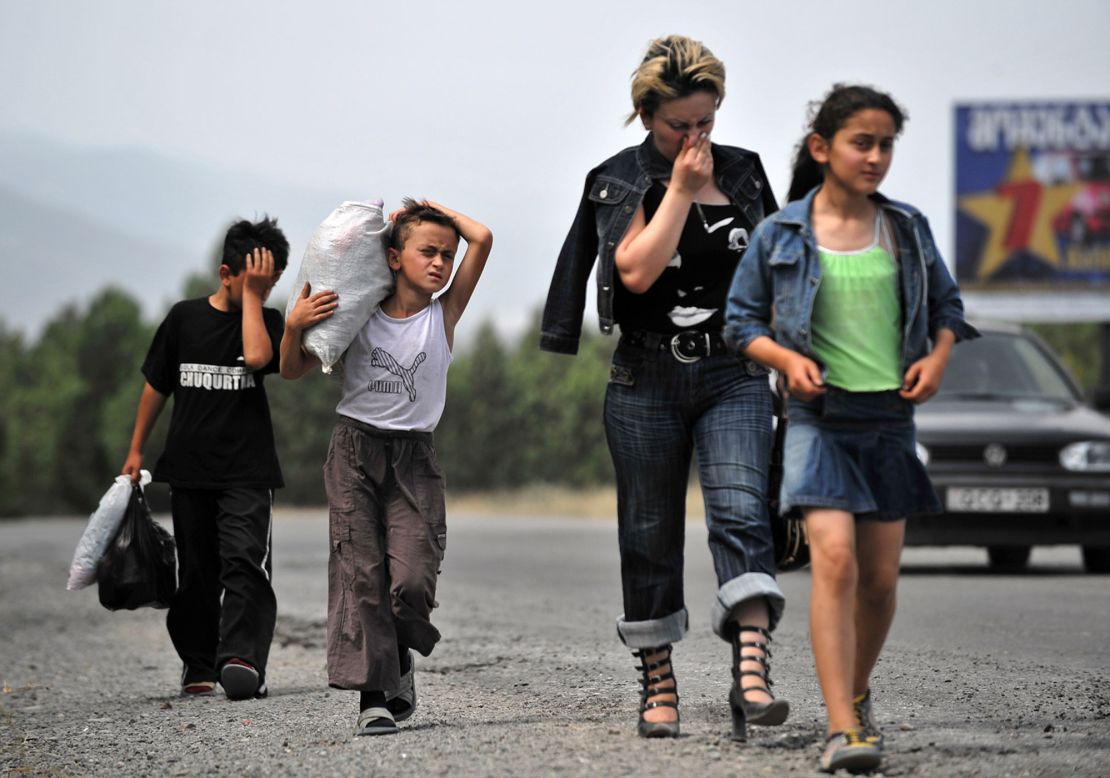
The teenager forced to start a new life 45 minutes away
The writer wishes to remain anonymous, due to safety concerns
I was 14 years old when Russian occupants force me to leave my hometown of Akhalgori, Georgia. I was 14 years old when I saw a real war and destroyed houses in the cities of Georgia.
On August 8, 2008, my family moved to a relative’s house in the capital Tbilisi. We spent several months there before the government offered us accommodation at the Tserovani Internally Displaced Persons (IDP) settlement.
Since the war between Russia and Georgia in 2008, I have become an IDP in my home country. I was forced to start a ‘new life’ 45 minutes from the home where I spent my childhood. Today, Akhalgori is occupied by Russian forces.
After moving to the IDP settlement, I tried to adjust to this new reality, and to work hard for mine – and my country’s – future success. I believe education is the best answer against Putin’s aggression. I’ve tried to develop, not only for myself, but to help peers who lost their houses, and to share my knowledge and experience with the world.
With the help of the European Union and many nongovernmental organizations, I earned an international BA and MA education – and now try to help my country to develop and prepare for future membership of the EU.
Almost 14 years have passed since the war, but Georgians still fight for their freedom. We see every day how Russian occupants kidnap Georgian citizens, how they move to the Georgian government’s controlled area, and how they treat the people who stayed in the occupied Abkhazia and Tskhinvali regions.
These residents can’t even cross so-called borders for medical or other vital services. They don’t have the freedom to see their children or relatives who live in the Georgian government’s controlled area.
Today I watch our brothers and sisters in Ukraine and I have the same feeling as in 2008 – they are also fighting for their freedom. Georgians are Ukrainians and they know that this is not only the Ukrainians’ war – it’s the whole world’s war.
We will win, and we will finish Putin’s aggression against Russia’s neighbors and beyond.




